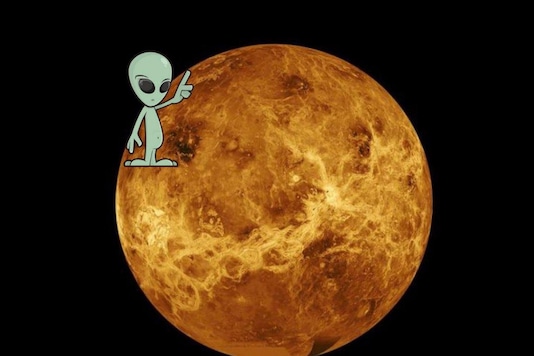
[ad_1]

Representative image (News18).
Although Earth is uniquely situated in the solar system to support creatures that call it home, different forms of life could have once existed, or might still exist, on other planets. The automated microchip electrophoresis analyzer developed by researchers could propel the search.
- IANS
- Last Updated: September 20, 2020, 12:38 PM IST
-
FOLLOW US ON:
Researchers have developed a fully automated microchip electrophoresis analyzer that, when incorporated into a planetary rover, could someday detect organic biosignatures in extraterrestrial soil.
Although Earth is uniquely situated in the solar system to support creatures that call it home, different forms of life could have once existed, or might still exist, on other planets.
But finding traces of past or current life forms on other worlds is challenging.
One critical piece of evidence for life beyond Earth is the presence of certain organic molecules.
Also Read: Does Phosphine Mean Alien Life on Venus? Breaking Down the Science Behind Stunning Discovery
Previous missions to Mars have relied on gas chromatography coupled to mass spectrometry (GC-MS) to separate and detect compounds.
However, the technique has limitations for the analysis of some molecules, such as organic acids, especially when water, minerals or salts are also in the sample, said the NASA-funded study appeared in the American Chemical Society’s journal Analytical Chemistry.
Also Read: Carl Sagan Had Predicted Life on Venus Before Humans Had Even Landed on the Moon
Microchip electrophoresis (ME)-based separations, followed by laser-induced fluorescence (LIF) detection, would be ideal, said researchers, but current instruments are only partially automated, which wouldn’t work for interplanetary missions.
Peter Willis and colleagues wanted to develop a portable, battery-powered instrument that could accept a sample and perform labelling, separation and detection of organic molecules, all in a fully automated fashion.
The researchers made a device that included two microchips — one for processing and labelling a liquid sample, and the other (the ME chip) for separating compounds — and an LIF detection system.
Also Read: ‘2020 Series Finale’: Venus May Have Alien Life and Humans Already Want to Migrate
This is how it worked.
After optimising the device, the researchers put it to the test in a simulated Mars mission in a Chilean desert.
The team coupled the analyzer to a portable subcritical water extractor on a remotely deployed rover system.
The rover drilled into the soil to collect samples, which were delivered to the extractor.
Also Read: Russians Claim Venus As Their Planet After Signs of Alien Life Discovered
Then, water was added to the soil samples, and they were heated to extract compounds for analysis.
The device detected parts per billion levels of amino acids in soil from three of four drilling locations.
“Importantly, the sensitivity was three orders of magnitude higher than that reported for GC-MS-based methods,” the authors wrote.
Although more work is needed to ready the instrument for spaceflight and extraterrestrial conditions, the research “lays the foundation for developing ME-LIF instruments for missions seeking signs of life beyond Earth”.
[ad_2]
Source link